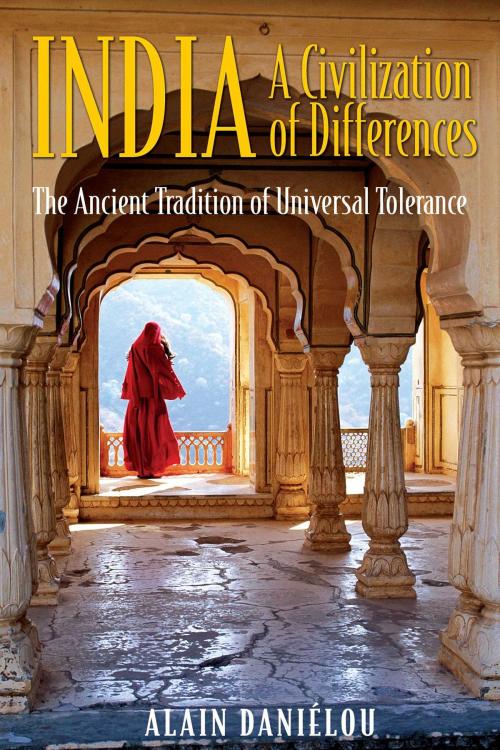India: A Civilization of Differences
The Ancient Tradition of Universal Tolerance
Nonfiction, History, Asian, India, Religion & Spirituality, New Age, New Thought, Social & Cultural Studies, Social Science| Author: | Alain Daniélou | ISBN: | 9781620550328 |
| Publisher: | Inner Traditions/Bear & Company | Publication: | July 5, 2005 |
| Imprint: | Inner Traditions | Language: | English |
| Author: | Alain Daniélou |
| ISBN: | 9781620550328 |
| Publisher: | Inner Traditions/Bear & Company |
| Publication: | July 5, 2005 |
| Imprint: | Inner Traditions |
| Language: | English |
A collection of Daniélou's writings that builds a bold and cogent defense of India's caste system
• Looks at the Hindu caste system not as racist inequality but as a natural ordering of diversity
• Reveals the stereotypes of Indian society invented to justify colonialism
• Includes never-before-published articles by the internationally recognized Hindu scholar and translator of The Complete Kama Sutra (200,000 copies sold)
In classical India social ethics are based on each individual's functional role in society. These ethics vary according to caste in order to maximize the individual's effectiveness in the social context. This is the definition of caste ethics.
The Indian caste system is not a hierarchy with some who are privileged and others who are despised; it is a natural ordering, an organizing principle, of a society wherein differences are embraced rather than ignored. In the caste system it is up to the individual to achieve perfection in the state to which he or she is born, since to a certain extent that state also forms part of a person's nature. All people must accomplish their individual spiritual destinies while, as members of a social group, ensuring the continuity of the group and collaborating in creating a favorable framework for all human life--thereby fulfilling the collective destiny of the group. The notion of transmigration provides an equalizing effect on this prescribed system in that today's prince may be reborn as a woodcutter and the Brahman as a shoemaker.
In India: A Civilization of Differences, Daniélou explores this seldom-heard side of the caste debate and argues effectively in its favor. This rare collection of the late author's writings contains several never-before-published articles and offers an in-depth look at the structure of Indian society before and after Western colonialism.
A collection of Daniélou's writings that builds a bold and cogent defense of India's caste system
• Looks at the Hindu caste system not as racist inequality but as a natural ordering of diversity
• Reveals the stereotypes of Indian society invented to justify colonialism
• Includes never-before-published articles by the internationally recognized Hindu scholar and translator of The Complete Kama Sutra (200,000 copies sold)
In classical India social ethics are based on each individual's functional role in society. These ethics vary according to caste in order to maximize the individual's effectiveness in the social context. This is the definition of caste ethics.
The Indian caste system is not a hierarchy with some who are privileged and others who are despised; it is a natural ordering, an organizing principle, of a society wherein differences are embraced rather than ignored. In the caste system it is up to the individual to achieve perfection in the state to which he or she is born, since to a certain extent that state also forms part of a person's nature. All people must accomplish their individual spiritual destinies while, as members of a social group, ensuring the continuity of the group and collaborating in creating a favorable framework for all human life--thereby fulfilling the collective destiny of the group. The notion of transmigration provides an equalizing effect on this prescribed system in that today's prince may be reborn as a woodcutter and the Brahman as a shoemaker.
In India: A Civilization of Differences, Daniélou explores this seldom-heard side of the caste debate and argues effectively in its favor. This rare collection of the late author's writings contains several never-before-published articles and offers an in-depth look at the structure of Indian society before and after Western colonialism.















